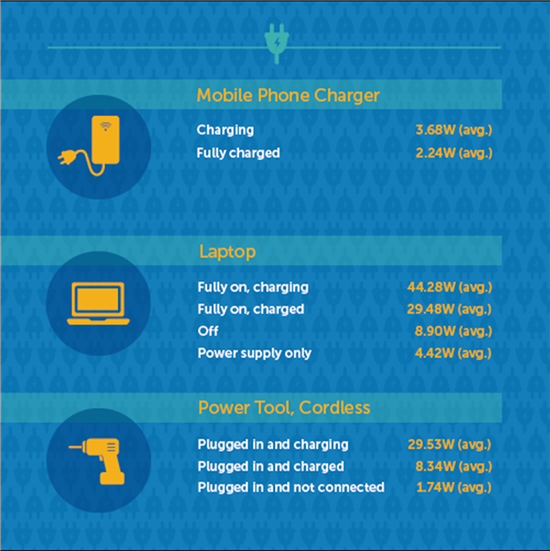By Stephen M. Roberts
Nobody’s questioning your ability to turn out the lights or turn up the air conditioning a bit in the summer. But with ever-increasing electricity rates and the growing demands of our digital-first world, it pays to be smart about your energy use. So are you? Take this quick quiz to find out.
False. Energy efficiency is about getting more out of a machine. In some cases, it might mean doing the same amount of work using less energy. However, another way to look at energy efficiency is to use the measure of energy intensity – that is, the amount of work done per unit of energy. As an example, if a storage device uses 50 watts to store 1 terabyte of information, a less energy intense storage device may use 100 watts to store 5 terabytes of information. Twice as much energy needed, but five times the storage.
True. Not because of what it does to the battery, but because you’re likely wasting more power than you think. It’s called “vampire power,” and it’s the electricity your gadgets *** even when they’re not on. The table illustrates a handful of examples.
Now will the 8 watts used by your cordless trimmer’s battery left plugged in break your bank? No. But think about this: if you leave that battery plugged in fully charged at the end of the season (let’s say October 15) and don’t remove it until the spring (let’s say March 15), you will use more than 30 kilowatt hours of electricity – the same as leaving a 100-watt light bulb on for nearly 13 days straight.
True and false. The ENERGY STAR label is a great way to identify products that qualify as energy efficient. But the program doesn’t cover every product type available, nor does it cover every situation. In the world of electronics, ENERGY STAR has continued to expand the types of products that can qualify, now even including servers.
False. While it’s true that many renewable energy systems rely on the weather for their source of power, it doesn’t mean that purchasing renewably-generated electricity puts you at risk when the sun doesn’t shine. One reason is that our power providers are tapping into a mix of sources: wind and solar, natural gas, hydro, geothermal and even some less well-known sources like biomass and tidal energy. By having a mix of sources spread over a wide area, the power providers can ensure availability. This includes fossil fuel-fired power plants that help ensure the total baseload need is met.
True. Power plants use a lot of water. In fact, according to data from the U.S. EPA, 49 percent of all water withdrawals in the U.S. are for the power sector. What’s more, more than 12 percent of the nation’s energy use is needed to meet water demands. Water is needed to extract raw materials like oil and gas, to cool power plants, power turbines, and even to cultivate crops for biofuels. Meanwhile, energy is needed to pump, transport and treat fresh water. The two are inextricably linked.
And because of this, problems for one mean problems for the other.
Two things we can all do to reduce this pressure: reduce our electricity use, and convert more of our electricity generation to renewables that are less water-intense (e.g., solar and wind).
How did you score? These are just a few of the issues related to energy use, but learning them puts you well on your way to being energy smart. For some good tips on how to reduce your own energy consumption, see the guide provided by the Natural Resources Defense Council.
